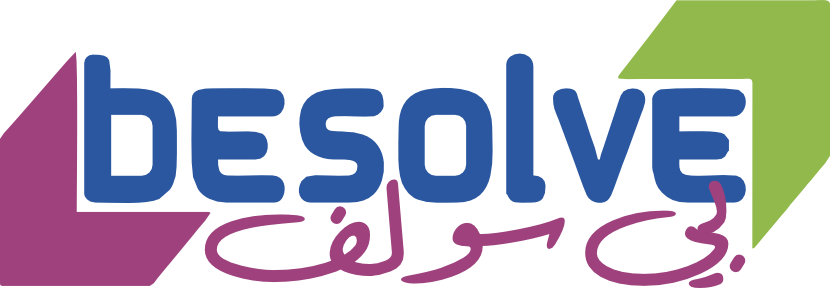
Blockchain Beyond Crypto: IT Applications Across Industries
Introduction
When most people hear the word "Blockchain," they immediately think of cryptocurrencies like Bitcoin and Ethereum. However, Blockchain technology is far more versatile than just powering digital currencies. It is a decentralized, secure, and transparent ledger system that is transforming industries beyond finance.
From healthcare and supply chain to real estate and voting systems, Blockchain is reshaping how businesses operate by enhancing security, efficiency, and trust. In this blog, we’ll explore how Blockchain is making waves in IT applications across various industries—proving that its potential goes way beyond crypto.
What is Blockchain Technology?
Before diving into its applications, let’s briefly understand how Blockchain works:
Decentralized Network: Unlike traditional databases controlled by a single entity, Blockchain operates on a peer-to-peer (P2P) network, eliminating the need for intermediaries.
Immutable Records: Once data is recorded in a Blockchain, it cannot be altered or deleted, ensuring transparency and security.
Smart Contracts: Self-executing contracts with predefined rules automate processes, reducing human errors and fraud.
Cryptographic Security: Advanced encryption ensures that transactions and data remain tamper-proof.
Now, let’s explore how different industries are leveraging Blockchain beyond cryptocurrency.
1. Healthcare: Secure & Transparent Patient Data Management
Problem:
Healthcare systems struggle with data breaches, interoperability issues, and inefficiencies in sharing medical records.
Blockchain Solution:
Electronic Health Records (EHRs): Blockchain enables secure, unified patient records accessible only to authorized personnel.
Drug Traceability: Prevents counterfeit medicines by tracking every step of the pharmaceutical supply chain.
Clinical Trials: Ensures transparent and tamper-proof trial data, improving research credibility.
Example:
MedRec (MIT) uses Blockchain to manage patient records securely while allowing controlled access to doctors and researchers.
2. Supply Chain: End-to-End Transparency & Fraud Prevention
Problem:
Supply chains are often opaque, slow, and prone to fraud, leading to inefficiencies and losses.
Blockchain Solution:
Real-Time Tracking: Every product movement is recorded, from raw materials to delivery.
Anti-Counterfeiting: Luxury brands and food industries use Blockchain to verify authenticity.
Automated Payments: Smart contracts trigger payments upon delivery confirmation, reducing disputes.
Example:
Walmart uses Blockchain to track food supply chains, reducing contamination response time from days to seconds.
3. Real Estate: Faster, Fraud-Free Transactions
Problem:
Real estate deals involve paperwork, middlemen, and fraud risks, making transactions slow and expensive.
Blockchain Solution:
Smart Contracts: Automate property sales, reducing legal and brokerage costs.
Tokenization: Properties can be digitally divided and sold as tokens, enabling fractional ownership.
Land Registry: Prevents property fraud by maintaining an immutable ownership record.
Example:
Sweden’s Lantmäteriet is testing Blockchain for digital land registries, cutting processing time by 90%.
4. Voting Systems: Tamper-Proof Elections
Problem:
Traditional voting systems face risks of rigging, miscounting, and low transparency.
Blockchain Solution:
Secure Digital Voting: Each vote is encrypted and stored on Blockchain, making it unchangeable.
Remote Voting: Enables secure online voting for better accessibility.
Real-Time Results: Eliminates delays and ensures instant, verifiable results.
Example:
West Virginia (USA) tested Blockchain-based mobile voting for military personnel overseas.
5. Intellectual Property & Royalties: Fair Compensation for Creators
Problem:
Artists, musicians, and writers often lose royalties due to piracy and middlemen.
Blockchain Solution:
NFTs (Non-Fungible Tokens): Prove ownership of digital art, music, and patents.
Automated Royalties: Smart contracts ensure instant payments when content is used.
Example:
Spotify explores Blockchain to track music royalties transparently.
6. Banking & Cross-Border Payments: Faster, Cheaper Transactions
Problem:
International money transfers are slow (3-5 days) and expensive (high fees).
Blockchain Solution:
Ripple (XRP): Enables near-instant cross-border payments at a fraction of traditional costs.
Decentralized Finance (DeFi): Eliminates banks, allowing peer-to-peer lending and borrowing.
Example:
Santander Bank uses Blockchain for One Pay FX, reducing transfer times to seconds.
7. IoT (Internet of Things): Secure Device Communication
Problem:
IoT devices are vulnerable to hacking and data breaches.
Blockchain Solution:
Decentralized Security: Devices communicate via Blockchain, preventing unauthorized access.
Automated Machine-to-Machine (M2M) Payments: IoT devices can transact autonomously.
Example:
IBM’s Watson IoT integrates Blockchain for secure supply chain tracking.
8. Education: Fraud-Proof Certificates & Credentials
Problem:
Fake degrees and certificate forgery undermine trust in educational systems.
Blockchain Solution:
Digital Diplomas: Universities issue tamper-proof certificates stored on Blockchain.
Lifetime Access: Students and employers can instantly verify credentials.
Example:
MIT issues Blockchain-based diplomas to graduates.
Future of Blockchain Beyond Crypto
Blockchain is still evolving, with emerging trends like:
Metaverse & Web3: Blockchain powers decentralized virtual worlds.
AI + Blockchain: Enhances data security and transparency in AI models.
Green Blockchain: Eco-friendly consensus mechanisms (e.g., Proof-of-Stake).
Conclusion
Blockchain is much more than just Bitcoin. From healthcare and voting to real estate and supply chains, it’s revolutionizing industries by enhancing security, transparency, and efficiency.
At Besolve, we help businesses integrate Blockchain solutions tailored to their needs. Whether you need smart contracts, supply chain tracking, or secure data management, our expert team delivers cutting-edge Blockchain development services.
🚀 Ready to explore Blockchain for your business?
📞 Contact Besolve today!
Why Choose Besolve for Blockchain Solutions?
✔ Expert Blockchain Developers
✔ Customized Solutions for Every Industry
✔ End-to-End Development & Support
✔ Global Presence (KSA, USA, Germany, India)
📍 Visit: www.besolve.live | ✉ Email: info@besolve.live | 📞 Call: +966 54 864 5597
Let’s build a smarter, more secure future with Blockchain! 🔗




